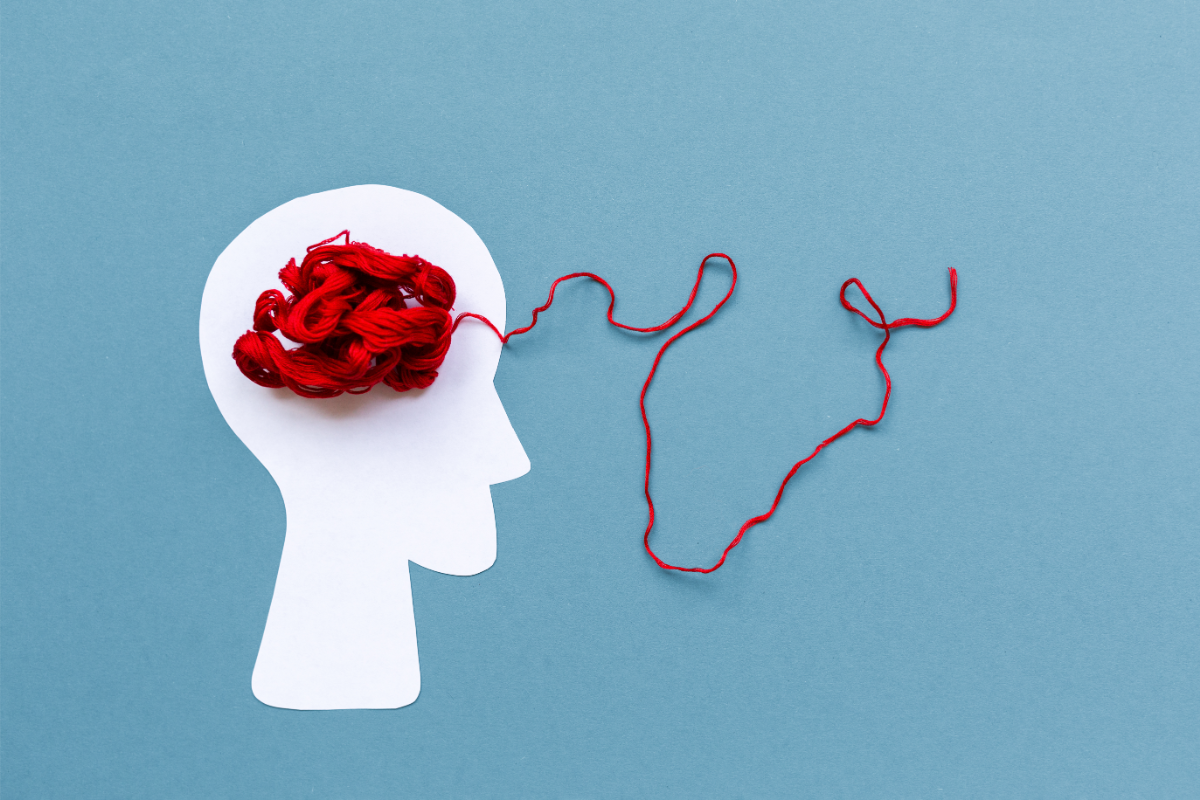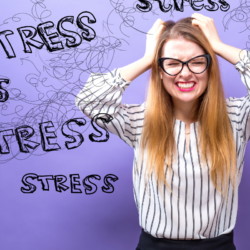Emotional disorders, or emotivity, refer to the fundamental property of the individual to react (psychic and somatic reactions) to physical stimuli or to changes in his organic or psychic situation. This reaction encompasses psychic manifestations (affects) as well as their somatic, neuro-vegetative and expressive concomitants. The somatic component is expressed through a range of vegetative phenomena: the heart, vasomotricity, the endocrine system, secretory or pilomotor reactions, muscle tone disorders, etc.
Emotional disorders and organic dysfunction
Emotional disorders play an important role, along with stress, in the aetiology of a number of diseases (peptic ulcer, irritable bowel syndrome, asthma, etc.) or in the origin of certain symptoms. Over time, functional reactions can become organic, first reversible then irreversible.
Understanding emotional and psychological disorders
Definition and types
Emotional and psychological problems refer to a wide range of conditions affecting an individual’s mental and emotional state. These disorders are characterised by significant disturbances in thinking, emotions, behaviour and perception of the self and the outside world.
The main types of emotional and psychological disorders include :
- Mood disorders: These include conditions such as depression and bipolar disorder, marked by extreme fluctuations in mood, ranging from profound sadness to excessive euphoria.
- Anxiety disorders: These include generalised anxiety disorder, panic disorder, specific phobias and post-traumatic stress disorder. These disorders are characterised by excessive and persistent fear or anxiety.
- Psychotic disorders: Such as schizophrenia, where patients lose touch with reality, experiencing hallucinations and delusions.
- Eating disorders: Such as anorexia and bulimia, which are associated with unhealthy eating behaviours and a distorted perception of the body.
- Obsessive-compulsive disorders (OCD): Characterised by obsessions (intrusive thoughts) and compulsions (repetitive behaviours).
- Stress-related disorders: Including acute stress reactions and adjustment disorders, where a person has difficulty coping with significant stressors.
Causes and symptoms
Causes :
Emotional and psychological disorders can result from a combination of genetic, biological, environmental and psychological factors:
- Genetic: A family history of mental disorders may increase the risk.
- Biological: Imbalances in brain neurotransmitters may play a role.
- Environmental: Stressful or traumatic life events, such as the loss of a loved one, abuse, or natural disasters, can trigger these disorders.
- Psychological: Negative thought patterns, difficult life experiences and relationship problems can contribute to their development.
Symptoms :
Symptoms vary considerably depending on the type of disorder, but can include:
- Mood changes: Such as persistent sadness, unreasonable euphoria, or extreme mood swings.
- Anxiety: Generalized feelings of worry, panic attacks, or specific irrational fears.
- Impaired thinking: Difficulty concentrating, confused thoughts, hallucinations or delusions.
- Disturbed behaviour: compulsive behaviour, disordered eating, excessive reactions to stress.
- Sleep problems: Insomnia or hypersomnia.
- Social withdrawal: Avoidance of social interaction, fear of social rejection, feelings of isolation.
- Physical changes: Weight loss or gain, chronic fatigue, or pain with no apparent cause.
A precise understanding of emotional and psychological disorders is crucial to their proper diagnosis and treatment. This often involves a multidisciplinary approach combining therapy, medication and sometimes complementary approaches such as homeopathy.
What about chronic conditions?
In chronic conditions, emotional distress may play a role not only as an aetiological factor, but also as a disease-maintaining factor. Subjective pain may even take centre stage. It will require its own homeopathic treatment. Finally, emotional factors may lead to intolerance and rejection of the treatment, especially if it has iatrogenic effects.
What role can homeopathy play in emotional disorders?
Homeopathy, by virtue of its method, is perfectly suited to the treatment of these patients and these illnesses, as it bases its semiology on observation of the patient’s reaction to his illness and on pathognomonic signs. Its field of choice will be :
- The pathology of general adaptation: stress and its short or long-term psychophysical consequences
- The prevention of this pathology, through the early use of the patient’s homeopathic medicines.
The semiological method, with its questioning and meticulous observation, is based to a large extent on self-observation. This is one of the advantages of the method, as very often the first symptoms to appear are functional ones that the patient alone can identify, while the clinical and biological tests are still normal. In these cases, homeopathy can be used as an early treatment, restoring a balance that has not yet been compromised and preventing further deterioration.
For homeopathy, disorders do not simply correspond to a deviation from a statistical norm , but can be considered a pathological symptom when the patient himself perceives an imbalance, discomfort or discomfort in relation to a better previous state of functioning. However, it is essential that self-observation is accurate, otherwise homeopathic semiology can become a trap. The limits of homeopathy are therefore conditioned by the possible pitfalls of the semiology which may be due to the disease.
The limits and pitfalls of disease
Self-observation does indeed have its limits, and is fraught with pitfalls. Certain areas of pathology, such as neuroses, psychoses and certain depressions, systematically distort self-observation.
In neuroses :
Symptoms are the symbolic expression of a psychic conflict rooted in the subject’s infantile history and constituting compromises between desire and defence. The symptom is presented in place of a repressed unconscious conflict. Homeopathy cannot be based directly on the proposed symptoms because it is about something else. In these cases, we will generally only obtain :
- Little or no improvement
- A displacement of the symptom
- Or an aggravation that is in fact psychic in origin (metaphorical role of the medicine)
To help hysterics or phobics, it is useless to look in a medical textbook or repertory for the drug for paralysis or fear of pins… On the other hand, it is partially effective to take the drug(s) for the overall condition, the drug(s) for the usual emotional functioning.
Similarly, in obsessive neurosis, it is necessary to identify carefully which symptoms correspond to the somato-psychic way of reacting and which are the result of unconscious psychic elaboration. The latter are not directly curable by the homeopathic method.
In psychoses :
When the disorders give rise to organised and structured delirium (paranoia, hypochondriacal delirium), it is impossible to apply the rule of similitude. In schizophrenia, where the ego is fragmented or simply fragile or cracked, the symptoms flee or multiply when faced with a semiological approach due to excessive subjectivity and anxiety. Here too, the search for a similar drug is impossible. If the patient is being treated for a condition other than psychosis, he will rely, as in neurosis, on symptoms corresponding to his overall somato-psychic reaction mode.
As for manic-depressive psychosis, it completely escapes all homeopathic therapeutic possibilities due to the lack of reactivity of the subject in crisis to homeopathic medicines. Discretion should be used when treating these discreet disorders or low-level delusions, as well as borderline states where symptoms may be projected onto the body.
In depression :
In reactionary depression (following psychic shocks, for example), homeopathic therapy can be effective in improving tolerance to stress and enabling the sufferer to return to a better equilibrium. But it may also be a case of an underlying neurotic structure which decompensates, or a lack of reactivity on the part of the patient, which limits our action.
It should be remembered that melancholic depression is a clinical form of manic-depressive psychosis and is therefore not suitable for homeopathic treatment.
The psychosomatic field :
Psychosomatic illness is first and foremost a somatic illness, i.e. the organic symptom (peptic ulcer, eczema, A.T.H., etc.) is always present; it replaces the anxiety of the neurotic subject. These people have a psychic functioning of the operative type with poverty of the imaginary. The homeopathic method can be applied simply and without restriction, by carefully looking for the drug similar to the lesion and its modalities, and the drug with a chronic reactionary mode. In addition, a long-lasting therapeutic doctor-patient relationship will be established, which is essential if healing is to be achieved.
What are the main homeopathic strains for emotional disorders?
| Homeopathic strain | Disorders Treated | Short description |
|---|---|---|
| Ignatia Amara | Stress, mild anxiety | Used for emotional shock, sadness, stress |
| Pulsatilla | Mood swings, anxiety | For emotional sensitivity, indecision |
| Gelsemium | Performance anxiety, stage fright | For anticipatory anxiety, shyness |
| Arnica Montana | Emotional shock, trauma | Helps recovery from emotional shock |
| Staphysagria | Repressed anger, frustration | For those who repress anger or frustration |
| Aconitum Napellus | Acute panic | Used for sudden panic attacks |
| Argentum Nitricum | Anxiety, nervousness, impulsivity | For anxiety associated with impulsivity |
| Natrum Muriaticum | Sadness, bereavement | For deep grief and loneliness |
| Sepia | Indifference, exhaustion | For apathy and emotional exhaustion |
| Sulphur | Obsessive thoughts, irritability | For intrusive thoughts and irritability |
This table is not exhaustive and homeopathic strains should be selected according to the specific symptoms of each individual. Furthermore, the effectiveness of homeopathy in the treatment of emotional and psychological disorders remains a subject of debate in the medical community. It is therefore essential to consult a health professional before starting any homeopathic treatment.
Conclusion
We can say that the potential of homeopathy for treating emotional disorders, and even neurotic subjects, is not negligible, as many medicines contain emotional reactions in their pathogenesis. If homeopathic treatment is to be effective, the symptoms of the disease must be carefully evaluated by identifying the body’s somato-psychic responses.
It is with these precautions that we can better understand the possibilities of homeopathy in :
- Anxious conditions
- Depressive states in adults
- Insomnia in adults and children
- School behaviour problems
- Various pains and headaches of varying intensity
FAQs:
- Can homeopathy be used in addition to other treatments for emotional and psychological disorders?
Yes, homeopathy can be used alongside other treatments for emotional and psychological disorders, but it is important to consult a healthcare professional to discuss possible interactions between treatments.
- Do homeopathic remedies have side effects?
Homeopathic remedies are generally considered safe, as they are very dilute. However, it is possible to experience side effects such as allergic reactions or adverse reactions linked to interactions with other medicines. It is important to consult a healthcare professional before taking homeopathic remedies.
- Can homeopathy be used to treat eating disorders?
Although homeopathy can be useful for certain symptoms associated with eating disorders, it cannot replace intensive medical treatment for these disorders. It is important to consult a healthcare professional to discuss treatment options.
- Can homeopathy be used to treat personality disorders?
Personality disorders often require intensive medical management, including psychological therapy and medication. Homeopathy alone cannot treat these disorders.
- Are homeopathic remedies safe for children?
Homeopathic remedies are generally considered safe for children, but it is important to consult a healthcare professional before giving homeopathic remedies to children.







